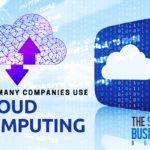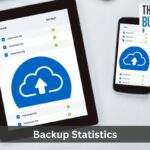As an entrepreneur in 2021, you know how valuable technology can be. It helps us streamline processes, save time, cut costs, and buy and sell internationally. It also assists with data storage and centralization.
Rather than paying for expensive on-site servers that take up physical office space these days, business owners can utilize helpful cloud-based tech platforms.
There are multiple ways you could be taking advantage of the cloud today.
Post Contents
Information Back-Up
One of the most valuable assets in most businesses is data. Most of us keep details in a digital format now, which must be protected carefully.
Backing up to the cloud is the best way to do this, whether you choose to utilize Amazon’s S3 buckets set up or Google Cloud Services, Microsoft Azure, or another option for your company’s needs.
Backing up data to the cloud enables you to take advantage of the capacity and security offered by providers without having to have your own costly and space-consuming servers.
Cloud platforms typically feature automatic updates and backups, too, which makes life easier and ensures your disaster recovery plans are at least partly taken care of.
If information gets accidentally deleted by you or your team or stolen or locked by hackers, you don’t have to stress if you know the vital data is securely backed up to the cloud.
Collaboration
Remote work was already being increasing embraced before 2020, but once the global pandemic hit, many more companies starting offering work-from-home solutions long-term.
Also, with many organizations operating nationally or globally now, it’s critical for good collaboration to occur between teams who may not be in the same region, let alone the same office.
If you implement cloud-based services, your employees can use internet-connected devices to complete their tasks and work together in real-time more conveniently and comprehensively.
While you may already use cloud platforms to enable your teams to work on documents together and share information quickly, note that many cloud operators also offer VOIP.
You can use cloud-based phone systems to increase communications and integrate these systems into everyday applications (such as CRM tools and email systems) to streamline processes.
This situation reduces the likelihood of miscommunications and errors and saves time and money.
Mobile Offices
Similarly, mobile offices are more popular than ever as companies increasingly do away with static desks and office configurations and encourage employees to work wherever suits them best.
Many people also work on the go, completing tasks in vehicles, public transport, and in cafes and the like between appointments or other commitments.
Cloud services make mobile offices possible, affordable, and easy to create.
For businesses, this means happier and more productive staff and the ability to avoid expanding costly physical space when bringing on new employees. It allows for more flexibility in how offices and other workspaces get used, too.
Flexibility and Streamlining
In the past, businesses had to rely on very costly in-house servers to store data. They also had to pay for IT personnel either on-site or hired contractors to set up, service, manage, and troubleshoot this tech.
This was costly, and reduced flexibility since companies had to forecast their IT needs well in advance and, once committed to expensive systems, deal with the limitations and expenses that came with them.
Now, though, thanks to the cloud, you merely pay for what you need in the cloud. Utilize as much or as little storage space as the business requires each month and add or decrease as needed. Scalability isn’t a problem anymore, nor is paying for unnecessary storage.
Most cloud applications automatically update themselves, too, so there’s less work required to keep file storage systems updated, organized, and maintained.
In turn, your IT needs reduce. As such, use the cloud to enjoy increased flexibility and streamline physical and mental resource needs.
Financial Management
Many entrepreneurs find that moving financial data and forms, reports, etc., to the cloud make their life easier, too.
Keeping track of and managing finances is efficient with the cloud. Don’t bother printing out or emailing documents one by one and send them to people.
Instead, provide limited cloud access to accountants, bookkeepers, internal staff members, and others who need to see and edit certain data for tax returns, payroll, and other functions.
This information sharing saves time and means there’s likely to be fewer errors caused by manual handling and transferring of information.
These are some of the key ways you can use the cloud in your organization. See how these ideas apply to your firm and explore how such platforms can help you do more with less today.






























